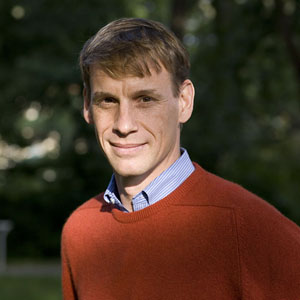bold idea
The Pendeba Project: train a network of village workers to address priority conservation and public health needs among the 75,000 inhabitants of the 34,400 square kilometer park to the north of Mt. Everest in the the Qomolangma Nature Preserve.
Personal Bio
Samuel Myers is a senior researcher and instructor at the Harvard T.H. Chan School of Public Health. He is Board Certified in internal medicine and is a Staff Physician at the Mount Auburn Hospital where he continues to see patients. Dr. Myers recently completed a National Institutes of Heath-funded research fellowship in General Internal Medicine at Harvard Medical School, where he performed original research on the role of patients’ expectations for improvement in their clinical outcomes. Dr. Myers was also Senior Director of the Healthy Communities Initiative at Conservation International. The initiative addressed health, family planning, and development needs of villagers living in priority conservation areas in the tropics. In 1997, Dr. Myers was awarded the American Association for the Advancement of Science’s Science and Diplomacy Fellowship and spent two years working for the U.S. Agency for International Development in the Environmental Health Division. At USAID, he examined the linkages between environmental change, human health, and development. Prior to that, Dr. Myers lived in Tibet where he was a field manager of the Pendeba Project in the Qomolangma Nature Preserve. As a field manager, he trained and supervised a network of village workers to address priority conservation and public health needs among the 75,000 inhabitants of the 34,400 square kilometer park to the north of Mt. Everest. A practicing physician and researcher, Dr. Myers has extensive experience describing connections between environmental change and human health in both industrialized and developing countries. His research interests include human health impacts of large-scale, anthropogenic environmental change including climate change, land use change, and deterioration of ecosystem services. Dr. Myers also studies the consequences of large-scale environmental change to human nutrition and impact of food production systems on the environment. Dr. Myers is also a member of the Worldwatch Institute Board of Directors and has recently published “Global Environmental Change: The Threat to Human Health” which discusses how anthropogenic activities are altering ecosystem functions and how these processes influence human health. More recently, he has become the Director of the Planetary Health Alliance.
-
Organization/Fellow Location ?
Our most recent information as to where the Fellow primarily resides.
-
Organization Structure ?
An organization can be structured as a nonprofit, for-profit, or hybrid (a structure that incorporates both nonprofit and for-profit elements).
